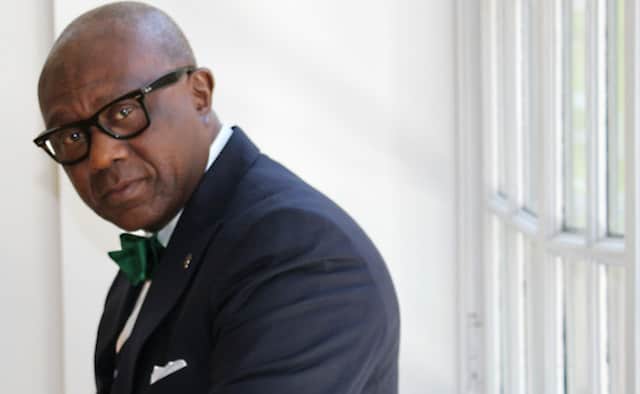GLOBAL SALON

Ebenezer Essoka, a native of Cameroon, is vice chair for Africa at Standard Chartered. He sat down with Global Finance to discuss African trade and the need for African policymakers to ensure that foreign investment deals are in the best interest of all stakeholders.
Essoka started his career at Bank of Boston in his native Cameroon before joining Standard Chartered in 1986. He received an MBA from Seton Hall University in South Orange, New Jersey.
Global Finance: Some of the largest investments in natural resources in Africa are Chinese. What does that say about the business environment?
Ebenezer Essoka: Our parents and grandparents who negotiated with the Chinese 10 or 20 years ago did not necessarily have the sophistication to negotiate to their advantage for a fair exchange. At the time, Africa was a dark continent to the Western world. There were no other takers. And we needed the money. There were highly indebted nations in Africa. So the Chinese got a lot of natural resources. Was the price fair? No. But if I have to negotiate with the Chinese today, you are speaking to a different African. I am absolutely determined to negotiate at an advantage.
GF: What advantage does an African enjoy in running a global bank in Africa?
Essoka: Obviously, it pays to have people who can look into the authorities’ eyeballs and tell them, “I’m sorry, Mr. President, but this isn’t going to work.” When I sat on the president of Ghana’s advisory council, one thing he told me was, “I enjoyed the brutal frankness of our conversations.” I could tell him directly what I thought was going wrong without being accused of being a racist. And without being accused of being a foreigner, even though I am Cameroonian by birth.
GF: Where in Africa would you say the banking industry is most advanced?
Essoka: South Africa, from a governance perspective, is much more solid. South Africa enacted Basel II and Basel III when America was still talking about Basel I and not wanting any more to do with it. On January 1, 2013, South Africa fully transitioned, from a capital perspective, to Basel III. America has not done that yet. So South Africa leads conversations in those areas.
GF: What does that say about South African banks’ ability to conduct financial transactions?
Essoka: The regulatory framework was not intended to define the ability of the banks to do transactions and make more money. It was all about financial stability. From a banking perspective, no rating agency has said South African banks are not solid. I think the regulator in South Africa has been exemplary. The banks themselves are well capitalized and liquid. The question is, Do we have enough now, given Basel III requirements, to fund investments that are needed for infrastructure, trade, et cetera? More capital is required. Bring into play North American, European and Asian banks. We will originate loans, and they will distribute them aggressively to the secondary market, where we sell down some of our exposure.
GF: Is Africa’s banking industry leapfrogging the West in terms of technology?
Essoka: A colleague of mine was buying a tourist trinket from a roadside stall in Kenya. When she handed over the cash, the seller said he would prefer a transaction over the phone. Mind you, when we started with point-of-sale terminals 10 years ago, even the most upscale retailers would not accept them. They said, “We want cash.” But today, kiosks are saying, “No, I don’t want your cash.” At Standard Chartered we have done very much on digitization to make sure we have systems that can converse with other platforms to make things work. It has become a major competitive focus. If you don’t do that, you will be out of the game.



